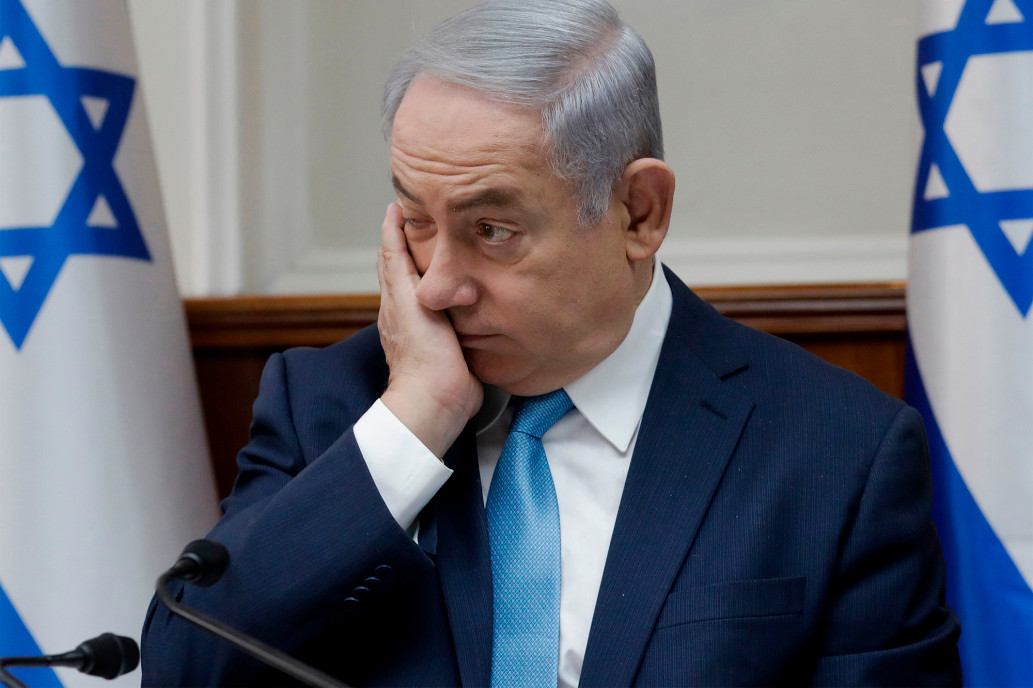Corruption is an Old Song for Israel
BY ADNAN PERWEZ

The current Israeli Prime Minister, Benjamin Netanyahu, has recently been caught in a relentless wave of corruption charges. The charges are both colorful and diverse, ranging from the cartoonish villainy of Case 1000, where Netanyahu is accused of accepting cigars and champagne from prominent billionaires in exchange for outright political favors, to the more ominous Case 2000, where Netanyahu is recorded explicitly colluding with Arnon Mozes, the publisher of prominent Israeli newspaper Yedoith Ahronoth. Speculation reigns that this was done to receive more positive media coverage in exchange for pushing legislation that would clamp down on HaYom, the paper’s main competitor.
To long-time followers of Israeli politics, Netanyahu’s corruption should come as no surprise. Every Israeli prime minister since the mid-1990s has been a subject of criminal investigation while in office. From Ehud Barak to Ariel Sharon to Ehud Olmert — the countless stories of bribery, laundering, and fraud grimly tell us that corruption has long been well and alive at the very highest levels of Israeli politics. Even now, Netanyahu seems far from being seriously wounded by the charges raised against him. He has consistently denied all charges, claiming that he instead is the victim of a nefarious witch hunt. Netanyahu’s history of hardline pro-settlement policies seem to have strongly resonated with the Israeli public; his public support remains solid amidst the gathering storm around his scandal.
The Prime Minister knows this fact all too well. In fact, according to Haaretz’s political commentator Yossi Verter, Netanyahu could use this base of support to his advantage by strategically calling for snap elections, causing him to “…form a new government, and then, after he’s indicted, argue that the public made its choice knowing what the suspicions were, and therefore. . .continue to manage his trial while also managing the country.” This maneuver, while flagrantly unethical and morally outrageous, would probably be able to buy Netanyahu more time and political cover to weather the worst of the storm.
But let us consider what will happen if the investigators do deliver a damning indictment, if the public does turn against the Prime Minister, if Netanyahu does cooperate and steps down from his position. Would the state of Israel look any different?
In all truth, it would not. Israel has long been moving inexorably towards becoming increasingly dominated by hardline right-wing politicians, desperate to outdo each other in bravado and incitement for conflict. Thus the rise of the political party Likud — with all its even more vocally extremist right-wing allies — seems unlikely to come to a halt anytime soon, with or without Netanyahu. And, though no single politician can be seen as the heir apparent, the list of politicians in potential contention are wondrous in their violent, reprehensible ideological uniformity.
To begin, there is former minister Giden Sa’ar, who stated plainly earlier this year that “...forming a Palestinian state now is a crazy idea that would distance peace and security. We cannot accept a Palestinian mini-state in Judea…We don’t want one state either.” Another prominent contender is the Justice Minister Ayelet Shaked, infamous for openly justifying the killings of Palestinian civilians in 2014 — noting (in a later-deleted Facebook post) that “…the entire Palestinian people is the enemy, including its elderly and its women, its cities and its villages, its property and its infrastructure.” If these choices aren’t stomach-turning enough, there is always Naftali Bennett — Netanyahu’s former chief of staff, ex-Minister, and current head of the Jewish Home party. Bennett takes Sa’ar’s hostility towards the very concept of Palestinian statehood one step further, personally promising the following: “I will do everything in my power to make sure they never get a state.” This statement is made all the more chilling when intertwined with his proud boasts where he bragged, “I already killed lots of Arabs in my life, and there is absolutely no problem with that.”
These are some of the young, inspirational rising stars of Israeli politics. With their ever-increasing bravado and nationalistic frenzy, each pulls the other — and by extension, the nation — farther and farther to the fringes, where only violence and hatred roil. Perhaps even more disturbingly, given this rhetoric’s mass popularity, it’s difficult to put the blame only on a specific class of ruling Israeli political elite. The rhetoric seems to have captured or struck some sort of deeper, darker primordialist chord among the public as well.
It is in this context that the current charges of corruption being levied against Netanyahu seem unlikely to shift the fundamentally radical ideology of Israel. Though Netanyahu himself may be charged and indicted for corruption — which would simply mean loyally following the long tradition of corrupt Israeli leaders before him — he is far from being the only leader committed to legitimizing state-sanctioned violence against Palestinians in the land. The extremist pro-settlement, pro-violence, anti-Palestinian fervor that sweeps across Israel runs far deeper than any one individual. If anything, the trend finds its heritage dating back from the beginnings of the state’s colonialist founding. In this sense, its oppressively violent, fragile ultranationalist nature is embedded into the very fabric of the nation’s politics and vision of the future.
And so Netanyahu’s rampant corruption is simply another discordant note, briefly and jarringly played — in the blindly loyalist, fiercely jingoistic, ominously symphonic theatre that has long been Israeli politics. One shudders at the thought of the inevitable crescendo.
